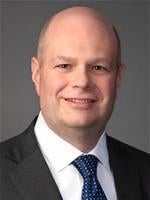Federal Reserve Board (“FRB”) Vice Chair of Supervision Michael Barr gave remarks to the Banking on Financial Inclusion Conference at Jackson State University early this week.
Vice Chair Barr spoke of the progress that has been made with regard to financial inclusion but pointed out that there continues to be a long way to go to include all households. He noted: “[w]e all have an interest in promoting a vibrant economy as well as resilient families and communities … [where everyone] would have access to credit on fair and equal terms to build a secure financial foundation.” Vice Chair Barr stressed that “despite widespread acceptance of this vision, we have a way to go in making it a reality, particularly for Black households.”
Vice Chair Barr identified three drivers of disparities in economic inclusion and three possible ways to address those disparities.
His three drivers are:
-
Discrimination. There continues to be troubling disparities in lending outcomes for Black individuals and businesses relative to others.
-
The racial wealth gap. Vice Chair Barr noted that 2019 FRB data shows White families have about eight times the wealth of Black families.
-
Disparities in financial services. Vice Chair Barr cited the FDIC’s survey on the unbanked and underbanked (which we discussed last November), which found that the unbanked rate for Black households was 11.3%, compared to 2.1% for White households.
Vice Chair Barr then offered three ways that financial institutions and regulators can work to help address these issues, including:
1. Eradicate discrimination in lending and other financial services, and protect consumers from other unfair, abusive or illegal practices.
2. Seek out opportunities to invest in low- and moderate-income communities.
3. Develop products and services that can help people save and build wealth, noting the development of FedNow faster payment and the Bank On initiative.
In conclusion, Vice Chair Barr said: “[T]hese are complex problems with no easy solutions, but we have an obligation to do our part.” Given this sentiment and how deeply Vice Chair Barr has cared about these issues during his career in government and academia, it is likely that opportunities to “do our part” will be inherent in much of the FRB’s regulatory agenda going forward.




 />i
/>i

